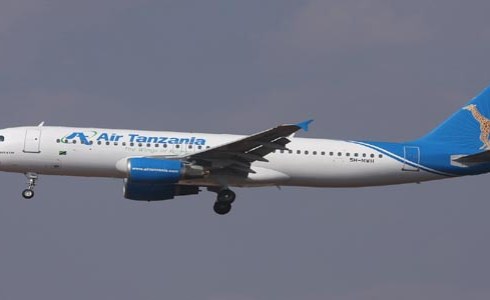Dar es Salaam. Tanzania has been ranked as one of the eight safest countries in Africa, making it a desirable tourist destination, according to a recent review by Altezza Travel.
Altezza Travel, a Tanzanian destination management company with over 10 years of impeccable service and a strong reputation, is renowned for organising unforgettable safaris and hiking adventures across the country.
Altezza Travel Assistant Director, Mr Dickson Muganda, has shared the findings with The Citizen, noting that the review, conducted in early January 2025, sought to counteract misleading portrayals of Africa as an insecure continent.
“The analysis shows that the negative reports about Africa are false and ill-intentioned. The continent has safer countries than many European nations,” said Mr Muganda.
He said the review involved selecting the top 7-10 leading countries and ranking them based on various safety indices.
Furthermore, he said Tanzania secured the eighth position, followed by Egypt, Tunisia, Morocco, Namibia, Zambia, Ghana, and Mauritius, which emerged as the safest country on the continent.
8. Tanzania
With a population of 68.6 million, Tanzania is known for its political stability and safety.
The country, with its capital in Dodoma and economic hub in Dar es Salaam, offers steady economic growth, driven by trade, investment, and tourism.
Tanzania is renowned for its unique natural beauty, including the Serengeti, Ngorongoro Crater, and Mount Kilimanjaro, which draw global attention.
Tourism is a key sector of Tanzania’s economy, attracting hundreds of thousands of visitors annually for safaris, beach holidays in Zanzibar, and cultural experiences in Stone Town.
The country is also famous for the Great Migration, tree-climbing lions, and Lake Tanganyika, the world’s second-deepest lake.
In 2023, Tanzania rose 11 places in the Global Peace Index, surpassing countries like Thailand, France, and China.
Its terrorist threat level is lower than the UK, the US, and many European nations.
However, Tanzania faces challenges in human development, ranking 167th out of 193 on the UN Human Development Index, indicating room for further improvement.
Other countries in the top rankings

Egypt, with a population of 112.7 million, benefits from its strategic location between the Middle East, Europe, and Africa.
It ranks 105th for peace and 20th for terrorism risk, mainly due to regional tensions.
However, its crime rate is lower than in countries like the UK, US, and France.

6. Tunisia
Tunisia, with a population of 12.3 million, offers direct access to Europe across the Mediterranean.
It ranks 73rd globally for peace and has a relatively low crime rate compared to countries like Canada, Ireland, and the UK.

5. Morocco
With a population of 39.2 million, Morocco is Africa’s economic hub.
It ranks higher than countries like Nepal, France, and China for peace, with no significant terrorism threat.
Its crime rate is lower than in the UK, US, Sweden, and other benchmark nations.

4. Namibia
Namibia, with a population of 2.8 million, is known for its political stability and low crime rate.
It ranks highly in the Peace and Terrorism Indices and outperforms countries like Kenya and Zambia in safety rankings.

Zambia, with a population of 21.1 million, has enjoyed political stability since its independence in 1964.
It ranks second-lowest globally for terrorism risk and has a crime rate lower than countries such as Greece, Ireland, and the UK.

Ghana, with a population of 34.5 million, is known for its independent judiciary and multiparty democracy.
It ranks highly in the Global Peace Index, surpassing countries like France and China. Its crime rate is lower than in Canada, Greece, and Australia.

1. Mauritius
Mauritius, with a population of 1.3 million, is Africa’s safest nation, ranking highly in the Global Peace Index.
It has the lowest terrorism threat level and a crime rate lower than in the UK, New Zealand, and Belgium.
The country leads in globalization and has remained conflict-free for the past five years.














